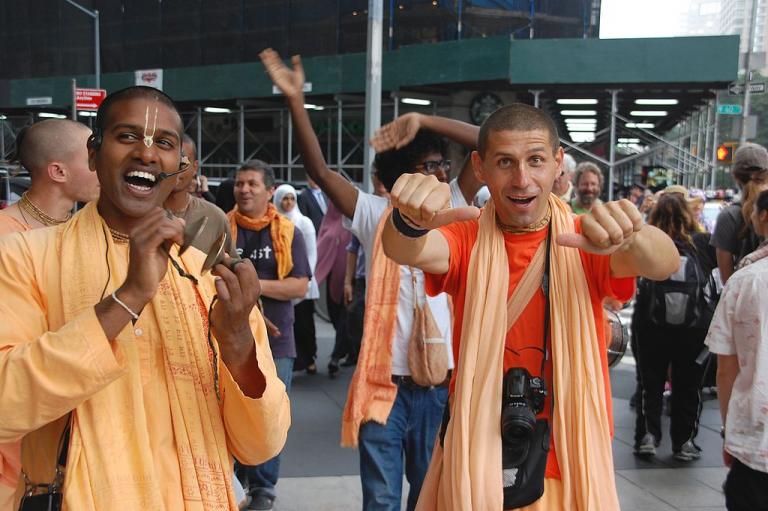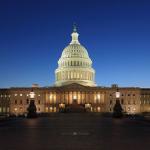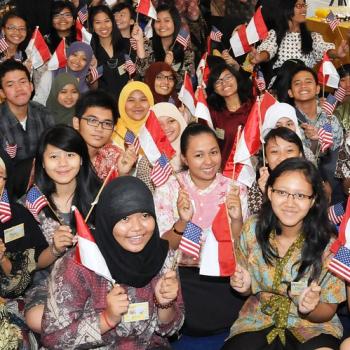
Those who describe themselves as “spiritual, but not religious” may in fact be practicing a religion without realizing it. Namely, Hinduism.
Vasudha Narayanan, religion professor at the University of Florida, has written an article entitled Americans may not know it, but they’ve long been embracing Hindu philosophy.
She points out that America in the 19th century became quite interested in Hinduism. She mentions, in particular, Ralph Waldo Emerson and Henry David Thoreau. Indeed, these and other Transcendentalists, who were enormously influential in American art and culture, found Hinduism–with its divinized Self and its mystical union of all things–to be highly compatible with American individualism and egalitarianism.
Today, thanks to the influence of the Maharishi Mahesh Yogi and his disciple Deepak Chopra, Hindu-style meditation is practiced by millions. Prof. Narayanana cites National Institute of Health statistics according to which over 18 million Americans meditate. She also points to the popularity of the Hindu practice of Yoga, engaged in by some 21 million adults and 1.7 million children.
Children are not allowed to pray in public schools, but they are often not only encouraged but taught to meditate and to do yoga.
As Prof. Narayanana says, you don’t have to call it Hindu for it to be Hindu. Referring to various Hindu teachers and movements that were brought into America, she writes:
Some, though not all, of these movements underplay or distance their connections with the word “Hindu” and some use labels such “spiritual” to emphasize their “universal” content.
In other words, though the teachers were Hindu and their teachings had Hindu origins, they were presented not as Hindu or as “religious,” but in a generic form as “spiritual” and as applicable to all human beings.
Meditation advocated by these gurus became distanced from its religious roots.
She goes on to cite the presence of Hindu ideas in American pop culture, such as the Star Wars concept of “The Force” and the illusory nature of reality that is the theme of “The Matrix.”
I would add that postmodernist ideas, such as the notion that reality is a construction of the self, fit well with the Hindu worldview.
Elsewhere, we learn that 25% of Americans and 24% of Christians believe in reincarnation, a Hindu idea.
And we are hearing more and more about “karma,” either with the actual Hindu term or in sayings like “what goes around comes around,” or “pay it forward.”
There are these popular manifestations of Hindu ideas, and there is also what Prof. Narayanana calls “Temple Hinduism,” the rituals, idol worship, and overtly religious ceremonies. These are mostly practiced in the United States by the 2.4 million immigrants from India.
I know that many actual Hindus from India pour scorn upon the sanitized, pop Hinduism that has taken hold in America. Such teachings as Karma and reincarnation are properly terrifying teachings, as is the illusory nature of the universe and the necessity of harsh self-discipline to escape from the meaningless cycles of rebirth. (See the book Karma Cola.)
But it may be that if America continues to abandon Christianity, Hinduism will rush into the void.
It’s hard to be “spiritual” without being “religious.” And many who claim to be “spiritual but not religious” are actually religious without realizing it. And that religion is Hinduism.
Photo, Hare Krishnas in New York, by Thomas Good (Own work) [CC BY-SA 3.0 (https://creativecommons.org/licenses/by-sa/3.0) or GFDL (http://www.gnu.org/copyleft/fdl.html)], via Wikimedia Commons













